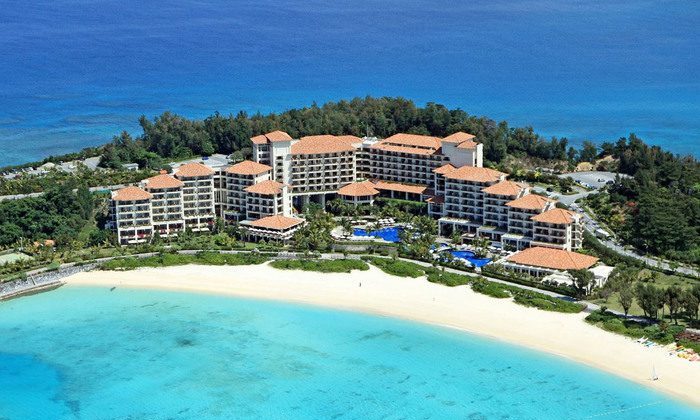All around the world, people have tried to unlock the power of omotenashi, the driving force behind Japanese hospitality culture.
GLOBIS lecturer Cristian Vlad interviewed Morio Higashionna, sales and marketing director of The Busena Terrace Hotel in Okinawa, for insight into creating an unforgettable customer experience founded on Japanese values.
Next Article
Omotenashi Is Not Enough: How to Bring the World to Japan
Omotenashi Principles in the Ever-changing World of Hotel Management
Cristian Vlad: You seem to have such boundless energy, creativity, and love for the hospitality industry. Where do you get your inspiration?
Morio Higashionna: That’s very kind of you to say. The truth is that I simply love my work. I’m passionate about hospitality. This is an incredibly dynamic industry. It grows and transforms in line with the rapid progress of technology, society, trends, mentalities, and of course guest expectations.
Vlad: What specifically has changed over the last ten years?
Higashionna: Pretty much everything. Our guest portfolio, to begin with. Ten years ago in Okinawa, more than 90% of our guests were Japanese.
We had some visitors from neighboring countries such as Korea and Taiwan, as well as some local guests from the US army, but the numbers were low. Today, though it depends on the season, there are times when overseas guests far outnumber domestic visitors.
Technology has impacted our business a lot. Ten years ago, we used to receive bookings over the phone, by fax, or through intermediary agents. Today, our guests expect to be able to book their accommodations using an app, and expectations for individual customization are on the rise year by year, month by month, and even day by day.
Vlad: This all must have quite an impact on your business. How do you keep up with these changes?
Higashionna: I try to be mindful of what needs to change and what needs to remain untouched. Most of our guests are repeaters who choose our hotel for who we are, what we offer, and how we interact with them. Our commitment to our customer promise is our very existence. At every opportunity, I remind our associates how important it is for all of us to stay true to who we are—to be authentic, genuine, and personal.
Vlad: Do you find that’s an easy promise to keep?
Higashionna: Of course not! It takes a lot of practice, training, and a willingness to act. In this industry, perceived reality is everything.
Sometimes, it’s not the hardware that matters to our guests as much as the atmosphere of the resort, the way they are greeted, the way their needs are anticipated, and the genuine hospitality of our associates.
Hospitality is a mindset that we all need to be able to act on.
How to Train Service Industry Employees in Omotenashi
Vlad: How do you train your associates for a hospitality mindset?
Higashionna: I usually begin by helping people understand what the Busena way is all about. This is what distinguishes us in a meaningful and emotional way from our competitors on the Ryukyu Islands, new or old.
It’s our unique definition of service—being able to collect hints and suggestions directly from our customers through interactions with them. We know what the customer experience is all about, so we listen carefully. We observe continuously. Then we strive to exceed every single expectation.
Vlad: How quickly are your entry-level associates able to understand this?
Higashionna: Some right away, others need help. For the latter, I explain that what we do is similar to a theme park like Disneyland, or even a musical. We all need to orchestrate our efforts to exceed whatever expectations our website, sales reps, or promotions might have projected into the minds and hearts of our guests.
Younger associates sometimes ask, “Why act?” I tell them this simple story: Imagine you go to Disneyland and have had a great time all around the park. But then you turn a corner and see Mickey on a break smoking a cigarette. Your dream would be shattered!
Be it Mickey, Santa Claus, or whomever, a dream is a dream, and a promise is a promise! For omotenashi, regardless of whether we are a resort, a restaurant, or a theater, we need to be able to deliver more value on stage than the guests have paid at the entrance.
Bringing Omotenashi into Hotel Operations
Vlad: So how do you manage to create that experience and keep it authentic over time?
Higashionna: It’s all about perception. It’s the colors that we use, the visuals, the sounds, the flavors, the architecture, and the ambiance. These are all carefully engineered to create a unique image that is meant to linger in our guests’ minds long after their departure.
What should linger even further is our own Busena smile, the friendly attitude of our people, and the human touch of our services. I want our guests to think of us whenever they think of Okinawa, and I want the name of our resort to come to mind first whenever anyone plans a retreat in Japan by the sea.




